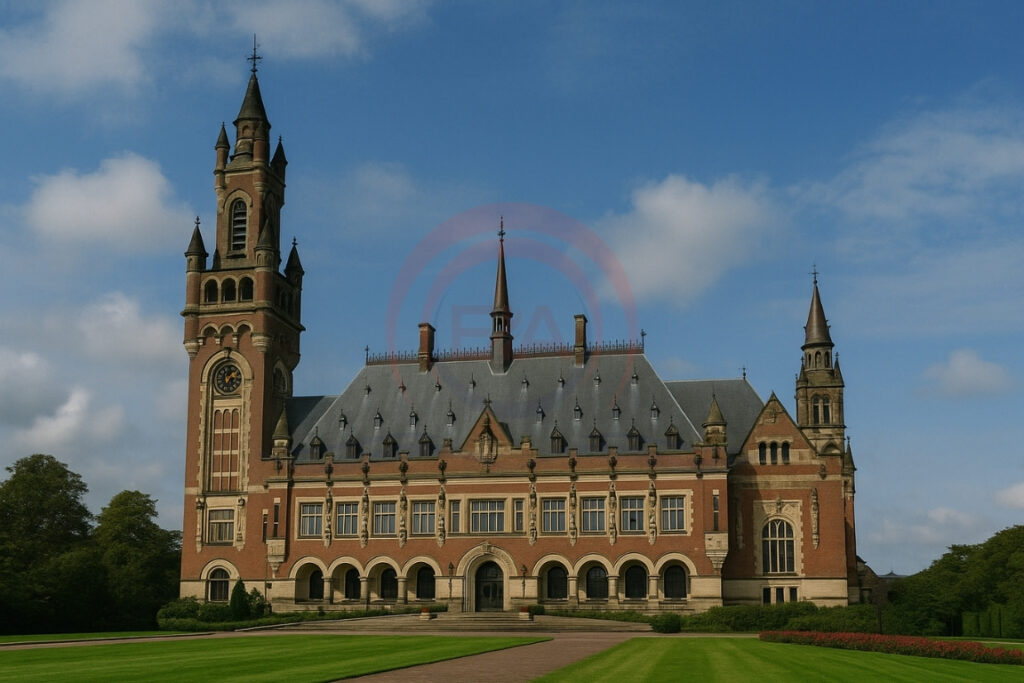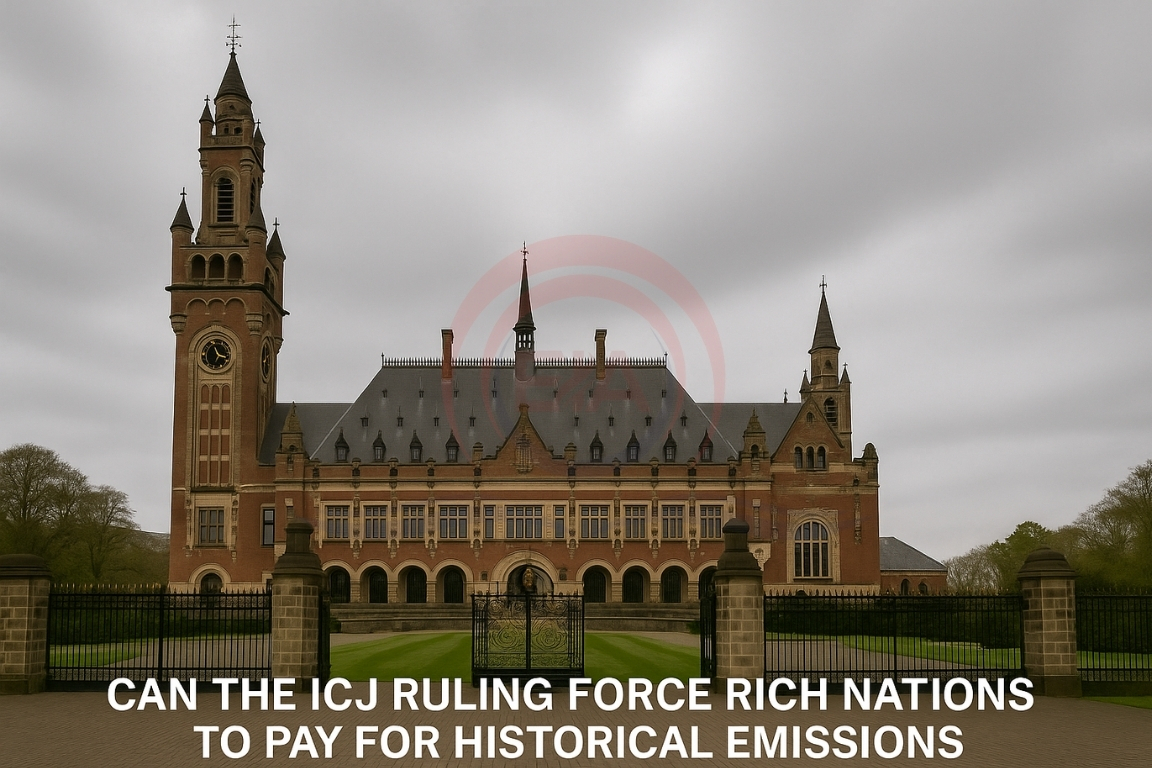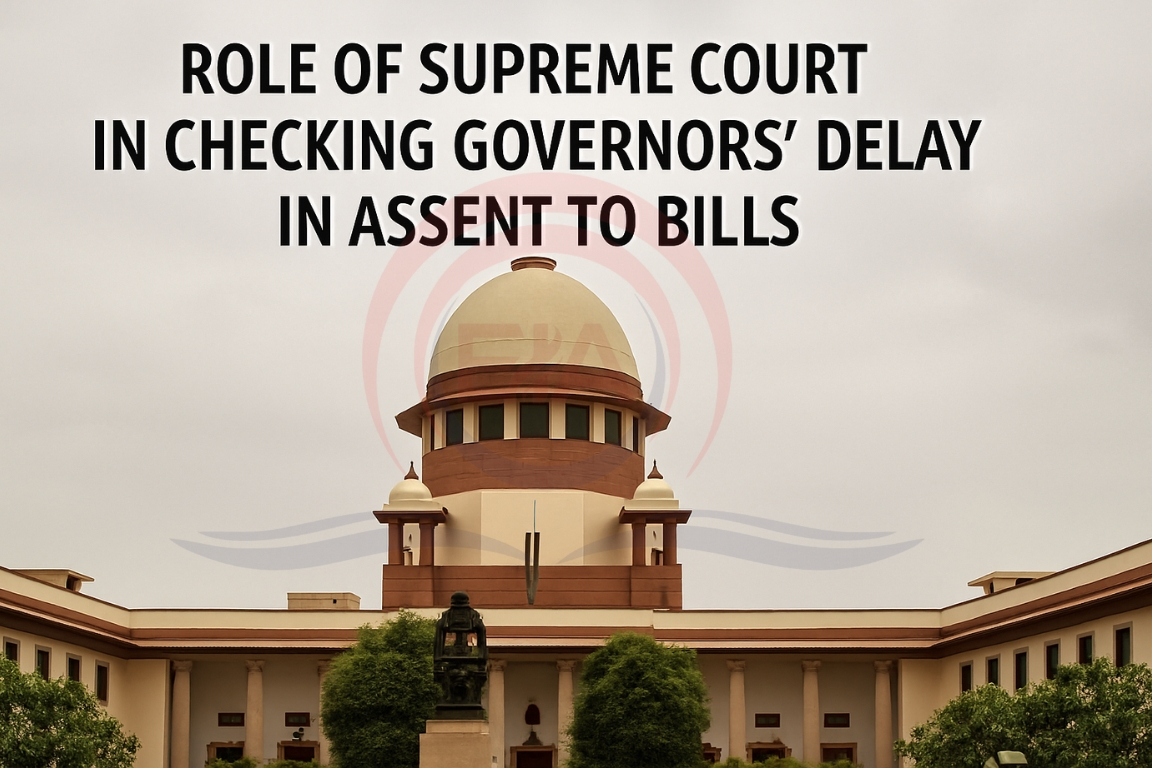On July 23, 2024, the International Court of Justice (ICJ) gave an advisory opinion reaffirming that all nations are legally obliged to reduce greenhouse gas (GHG) emissions and support vulnerable countries, sparking debates on whether rich nations can be made to pay for historical emissions.
Background of the ICJ Ruling
- ICJ’s advisory opinion highlighted legal obligations to mitigate climate change and protect vulnerable nations.
- It reaffirmed the 1.5°C Paris Agreement target and linked state duties to reducing emissions and supporting adaptation.
- The opinion is non-binding but offers legal support for domestic litigation in climate-related cases.
Enforcement Challenges
- Advisory nature: ICJ cannot enforce payments or emission cuts; it only gives legal opinions.
- Political barriers: Even if enforceable, UN Security Council politics could block action.
- Historical precedent: Major emitters like the U.S. have ignored global agreements (e.g., withdrawal from the Paris Agreement).

Difficulty in Proving Liability
- Causation problem: Linking specific disasters to a country’s inaction is scientifically and legally complex.
- Climate impacts are amplifiers, not always direct causes of natural events.
- Populations often choose high-risk areas like coasts for economic reasons, complicating claims.
Sovereignty and Political Realities
- No country will dismantle its energy system because of a court ruling.
- Rich nations focus on domestic interests and corporate pressures over global obligations.
- Loss and Damage Fund and climate reparations remain symbolic with minimal actual compensation.
Opportunities and Domestic Implications
- Domestic courts can use the ICJ opinion to hold governments accountable for emission reduction and policy failures.
- Vulnerable nations may leverage the ruling for legal advocacy and climate diplomacy.
- Pushes developing nations to act independently on emission reductions, benefiting their own citizens (e.g., improving air quality in Indian cities).
Way Forward
- Focus on self-reliant climate action and domestic emission reduction rather than waiting for reparations.
- Invest in clean technology, adaptation, and resilience-building.
- Use ICJ advisory opinions as moral pressure and legal tools in domestic contexts.
Conclusion:
The ICJ ruling strengthens moral and legal arguments for climate action but cannot force rich nations to pay for past emissions. Its real impact lies in domestic litigation, activism, and policy advocacy, rather than in compelling global reparations.





